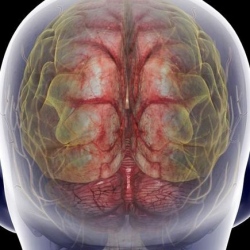
A range of differences
An increasing number of studies show that redheads are differently constituted in terms of pain perception and body reactions. Research reveals that redheads:
are more sensitive to cold
are less responsive to subcutaneously administered anaesthetics [under the skin]
suffer more from toothaches and are more frightened of dentists
are at greater risk of developing sclerosis and endometriosis
Some studies indicate that redheads are more prone to illness because they prefer to keep out of the sun and so lack vitamin D, or because their ability to absorb the vitamin is less efficient.
Capsaicin produces the same burning sensation in the skin as it does in the mouth when a hot chilli sauce is eaten. It is one of the best substances for testing how we experience pain because it is easy to use and produces a pain sensation without affecting muscles or other parts of the body.A persistent rumour has also circulated about surgeons being reluctant to perform surgery on redheads because they are said to bleed more.
But this myth was recently exploded by a recent study, which showed that redheads are no different to anyone else in this respect.
Surprisingly tough
In other respects, however, redheads turn out to be tougher than other people.
Research has produced evidence that redheads are less sensitive to stinging pain in the skin.
This was shown in tests where capsaicin, the active substance in chilli, was injected into the skin to produce pain.
FactsIn recent years, research has indicated that redheaded women especially experience pain in a different way.
The evidence stems originally from experiments on female mice, and so most of the human studies have been conducted on redheaded women. But there is nothing to suggest that the different perception of pain may not equally apply to redheaded men.
"Our tests showed that redheads are less sensitive to this particular type of pain. They react less to pressure close to the injected area, or to a pinprick. They seem to be a bit better protected, and that is a really interesting finding," says Professor Lars Arendt-Nielsen of the Center for Sensory-Motor Interaction at Aalborg University.
